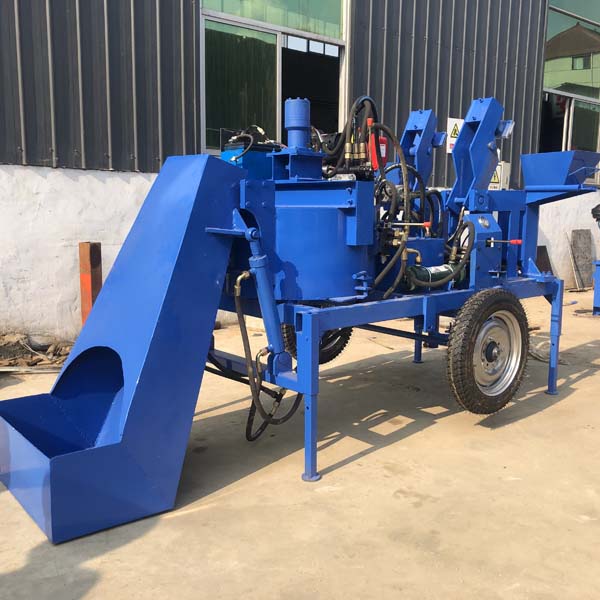
Image source Aiweibrickmachine
Supply Chain Optimization for Full-Automatic Block Manufacturing
Title: Supply Chain Optimization Strategies for Full-Automatic Block Manufacturing in the Construction Industry
Introduction:
In the construction industry, the adoption of full-automatic block manufacturing brings forth new challenges and opportunities in supply chain management. Optimizing the supply chain for full-automatic block production is essential for ensuring efficiency, reducing costs, and maintaining a competitive edge in the market. This article explores key strategies to enhance supply chain performance in the context of full-automatic block manufacturing.
1. **Integrated Planning and Forecasting:**
Implement a robust integrated planning and forecasting system that considers demand variability, market trends, and production capacities. Accurate forecasting allows for better inventory management, ensuring that raw materials are procured in the right quantities and at the right time.
2. **Collaborative Supplier Relationships:**
Foster strong and collaborative relationships with suppliers. Engage in open communication, share production forecasts, and work together to streamline the supply chain. Closer ties with suppliers can lead to better pricing, timely deliveries, and increased overall reliability.
3. **Digitalization and Connectivity:**
Embrace digital technologies to create a connected and transparent supply chain. Utilize software solutions that enable real-time tracking of inventory, production processes, and logistics. This connectivity facilitates quick decision-making, minimizes delays, and enhances overall supply chain visibility.
4. **Lean Inventory Management:**
Adopt lean inventory management principles to minimize excess stock and reduce carrying costs. Full-automatic block manufacturing allows for precise control over production schedules, enabling a just-in-time inventory approach. This strategy ensures that materials are used efficiently without compromising production timelines.
5. **Supplier Diversification:**
Diversify the supplier base to mitigate risks associated with dependency on a single source. Having multiple suppliers for critical materials reduces the impact of disruptions caused by unforeseen events, ensuring a more resilient supply chain.
6. **Quality Assurance Protocols:**
Implement stringent quality assurance protocols for both incoming raw materials and finished products. This ensures that the materials used in the full-automatic block manufacturing process meet the required standards, minimizing the risk of defects and rework in the production line.
7. **Transportation Optimization:**
Optimize transportation logistics to reduce lead times and transportation costs. Utilize efficient routes, consider alternative transportation modes, and leverage technology to track and manage shipments. Streamlining transportation processes contributes to overall supply chain efficiency.
8. **Demand-Driven Production:**
Align production schedules with actual demand to avoid overproduction. Implement demand-driven production strategies that allow the full-automatic block manufacturing facility to adjust production rates based on market demand, preventing excess inventory buildup.
9. **Energy-Efficient Practices:**
Consider sustainable and energy-efficient practices throughout the supply chain. From raw material extraction to manufacturing processes, incorporating eco-friendly initiatives not only reduces environmental impact but also aligns with market trends favoring sustainable construction materials.
10. **Continuous Improvement and Analytics:**
Establish a culture of continuous improvement by regularly analyzing supply chain performance. Leverage data analytics to identify inefficiencies, monitor key performance indicators, and implement data-driven optimizations. This iterative approach ensures that the supply chain remains adaptable and responsive to changing market conditions.
Conclusion:
Supply chain optimization for full-automatic block manufacturing is a multifaceted endeavor that requires strategic planning, technological integration, and collaboration with stakeholders. By implementing these key strategies, construction companies can enhance their supply chain efficiency, reduce costs, and ultimately position themselves as leaders in the dynamic landscape of full-automatic block production. As the industry continues to evolve, a well-optimized supply chain becomes a critical component for success in delivering high-quality construction materials to meet the demands of the market.
